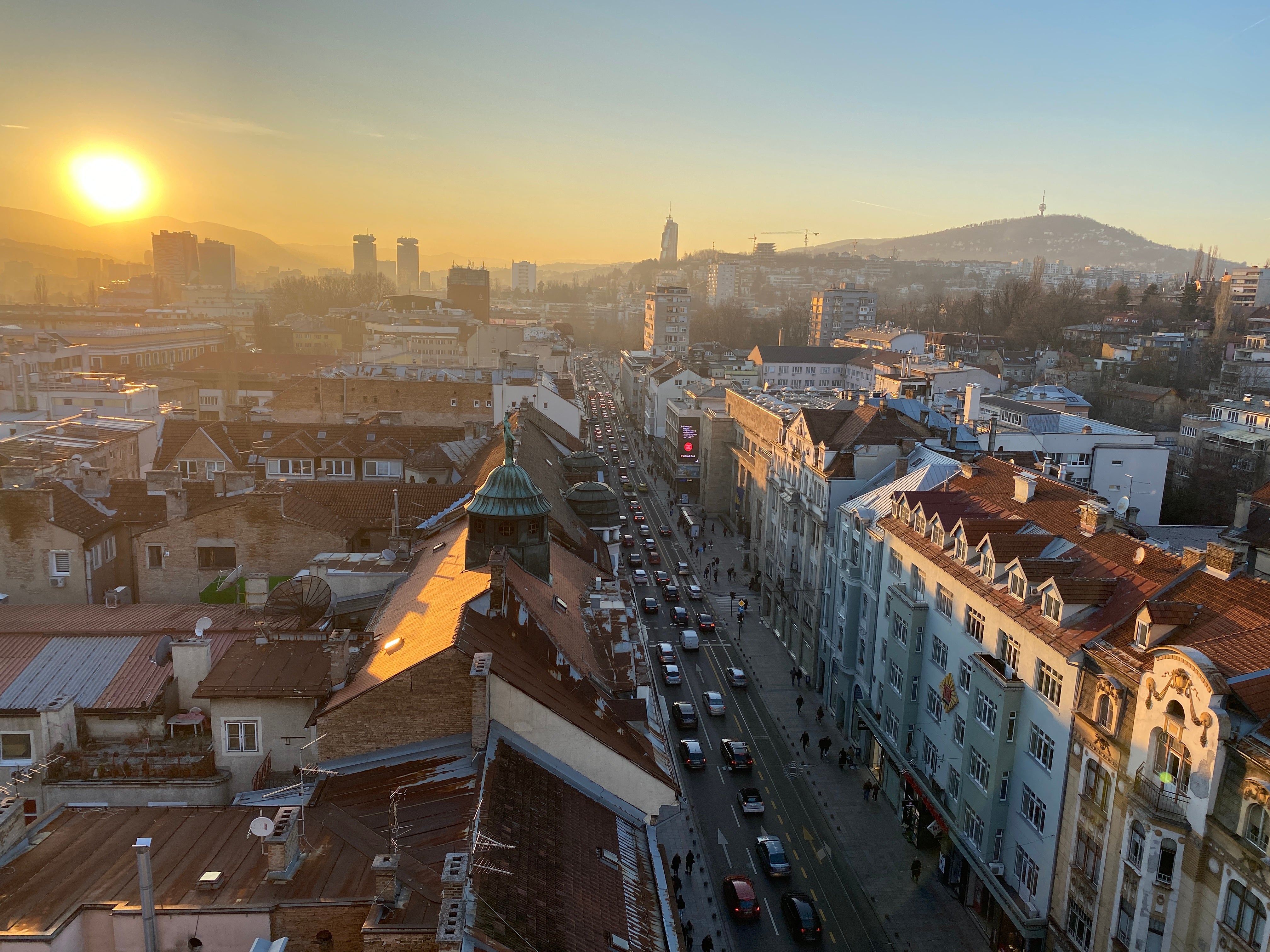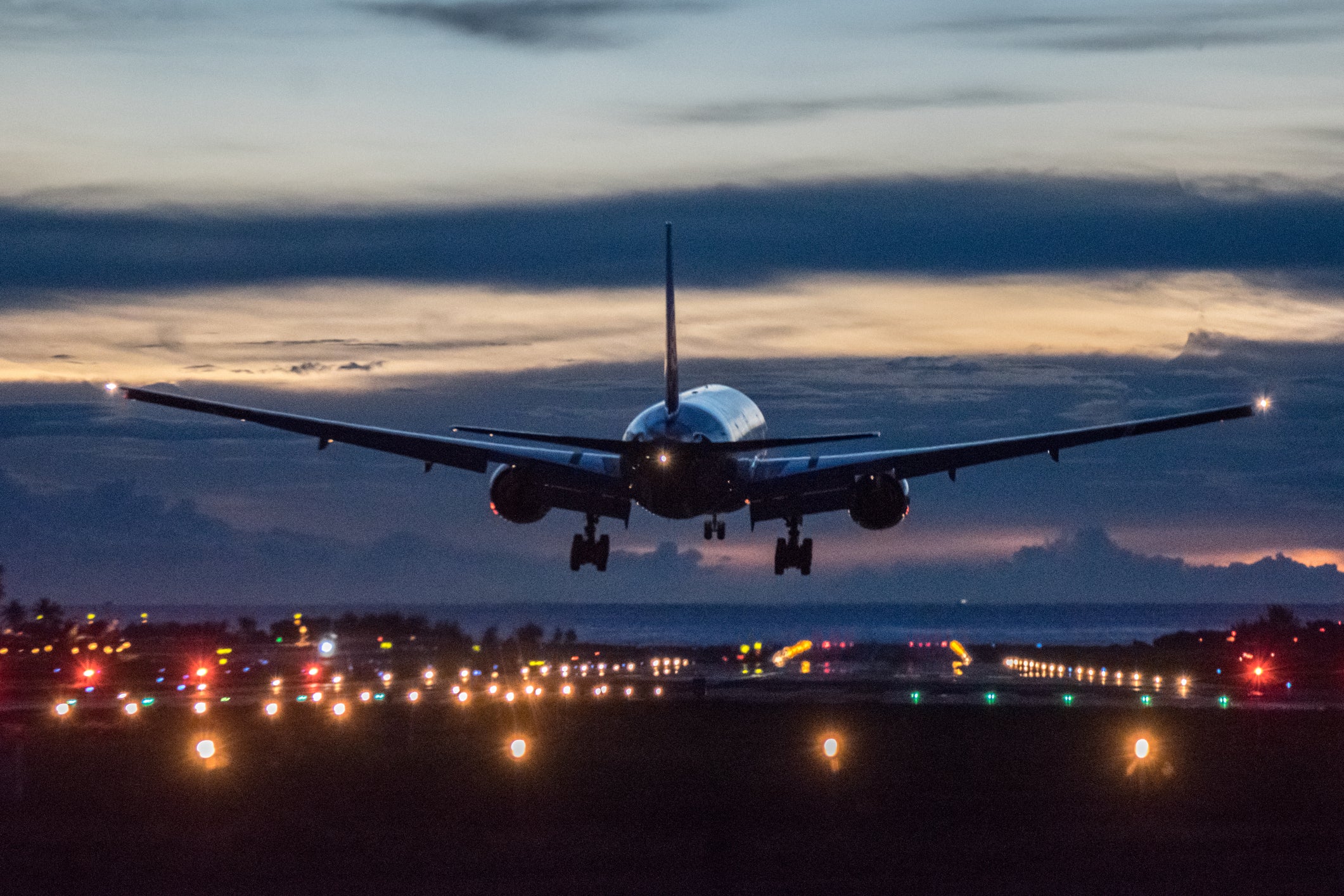What’s the best way to pay those bills in the Balkans?
Simon Calder answers your questions on the Balkans, Marrakech and hours-long flight delays

Q This one is about currency for a multinational trip across the western Balkans, taking in Croatia, Bosnia-Herzegovina, Montenegro and Albania. I try to use my Chase card for all spending while abroad (which gives me cashback), and I try to get local currency from ATMs using the same card. How widespread are card payment methods in those countries and availability of ATMs for cash please?
Jim B
A Let me take this one country at a time. Croatia is straightforward, with many merchants accepting credit cards. I would source euros in advance at a good rate in the UK, though – as with many parts of Europe, handling fees imposed by the local ATM operators for cash withdrawals are spreading and increasing. Montenegro also uses the euro (even though it is outside the European Union). Credit card acceptance is, in my experience, a little less universal.
Once you get into adjacent Albania, euros are still welcome – though if you have the local currency, the lek, you will not be subject to the occasional creative exchange rate in the merchant’s favour. Bureaux de change in Albania offer excellent rates for cash sterling notes, even at Tirana airport. I change little and often, and typically change back any leftover lek for euros; the rates are so keen that this still works out as a good deal. Traders in Albania are very focused on cash, in my experience, and often will accept a card either with great reluctance or not at all.
Similar advice applies for Bosnia-Herzegovina. I typically pay hotel bills with a credit card but pretty much everything else is in the local currency, the “convertible mark” – or KM on price stickers. Again, bureaux de change are widespread and fair. So, plenty of clean sterling notes should see you through this part of the Balkans.

Q In the spring of 2022 I was refused boarding by a budget airline, which imposed the incorrect rules about passport validity. I then complained to the ADR [alternative dispute resolution] provider which, after over a year, took the airline’s side. They said the government guidelines were incorrect at the time and so it wasn’t the airline’s fault.
I objected, and a year later(!) the adjudicator has written back confirming the judgement. I am now thinking of going to Money Claim Online, but I am nervous because it feels like they have a loophole by blaming the government. What do you suggest?
Clare M
A I suggest you go ahead and claim. You will probably have lost hundreds of pounds in air fares and other expenses, as well as compensation of £220 or £350 (depending on distance) for being turned away.
Your case was one of thousands in which airlines inexplicably made up their own “rule” that British passports were not valid for travel to the European Union after nine years and nine months. There was never any truth in it. The Foreign Office rather pathetically said, for a while, it might be correct, which is what your airline is relying on as a defence.
But I believe you can be confident about a successful legal claim – for which you have to pay an initial fee, which is returned if you win. The airlines were aware of the exact rules for travel to the EU for UK passport holders in October 2021, because that is when I set out in full detail the actual European Union policy.
It was clear to me that once the Covid pandemic subsided, the “full Brexit” that had taken place at the start of 2021 would lead to confusion for airlines and travellers. So I spent months liaising with officials in Brussels about the exact policy.
That discussion concluded in October 2021, and I supplied the airlines – and UK government – with all the correspondence and contacts they needed. The fact that some airlines chose to ignore it is their problem, not yours. Let me know how you fare.

Q It seems the cheapest trip to fly from Bristol to Marrakech in Morocco next month is for six days from 2 to 7 November. Is that too long for one city? If so, how would you split it up and make it work?
Daf M
A This winter, 2024-25, Morocco will feature heavily on many itineraries as the UK gets a surge in air links to the north African nation. Early November is an excellent time to extend the summer – helped by ridiculously cheap fares. The afternoon flight from Bristol to Marrakech on Saturday 2 November on Ryanair is currently £20 one way. This includes only minimal cabin baggage, but you should not need more than that for a six-day stay in a nation that is warm and rewarding. Coming back on Thursday 7 November with easyJet, the fare is £25. These are preposterously low and worth grabbing: 2,800 miles of air travel for £45. (A return trip on the airport bus from central Bristol will add one-third to the total transport cost.)
Start with 48 hours in the “red” or “rose” city of Marrakech, which has a permanent pink hue that enriches its stunning appearance. The 77-metre minaret of the 12th-century Koutoubia Mosque towers over the city and summons you to the Unesco-listed medina – a maze of alleys, souks and dwellings, including some beautiful riads. These are traditional mansions now converted to tourist accommodation.
Beyond Marrakech you might want to spend a couple of days hiking in the Atlas mountains to the south; the Kasbah du Toubkhal lodge, in the foothills just an hour or so south of Marrakech, makes a marvellous base. Spend at least two days out at the Atlantic coast – in particular, at Essaouira, a three-hour bus ride west from Marrakech. A beautiful old port (with a beach attached) radiates atmosphere – you can see how some of the more exotic 1960s pop stars were seduced by the place.
You could put together a triangular trip with a journey down the coast to Agadir, a pure resort city, or north to Casablanca – Morocco’s commercial heart, and a place I adore for its energy and friendliness. To return to your starting point for the flight home take the Marrakech Express train, as immortalised in a song of the same title by Crosby, Stills and Nash in those olden days.

Q Recently we were delayed over four hours on a Glasgow-to-Malaga flight. It was a scheduled early evening departure. A one-hour air-traffic control delay increased to two hours. The crew then ran out of hours and they had to scramble a standby crew. The eventual captain told us he was sitting having his evening meal with family in Edinburgh when he was called out. We ended up being four hours late. What should have been a smooth mid-evening arrival became a landing at the small hours of the morning. All public transport at Malaga had finished, so we spent €75 [£63] on an Uber to get to our apartment near Marbella.
We want reimbursement of the Uber and your opinion on whether we are due compensation for the long delay? The airline says air-traffic issues are not its problem, but the crew situation was surely within their management? So we feel they are at least in some way responsible. Are we entitled to anything?
Brian H
A “Creeping” delays are one of the more frustrating elements of air travel. Evening departures are particularly prone to getting progressively later in my experience. If a “first-wave” flight departs late, it can pick up additional delays. This is especially the case on flights to and from the Mediterranean, which have been particularly susceptible to air-traffic control slot restrictions this summer. I always assume that any evening flight is going to be at least an hour late – and if it happens to be on time I am pleasantly surprised.
I fear, though, that I cannot see much chance of a claim succeeding. Looking at the statutory compensation of £350 per person first: the airline will just point to the lengthening air-traffic control delay. Had the sequence of events been the opposite way around – crew issue followed by air-traffic control delay – you might well have had a case. It was, indeed, unfortunate that the captain was having his dinner in Edinburgh rather than on standby at Glasgow airport, but at least the airline did have some backup.
On the Uber ride: I imagine the airline will simply direct you to your travel insurer, who may or may not cover you for such annoying expenditure.
Finally, I presume the airline bought you your dinner while you were waiting at the airport, as it is obliged to do? If not, send in the bill for whatever you ate.
Email your question to s@hols.tv or tweet @simoncalder
Join our commenting forum
Join thought-provoking conversations, follow other Independent readers and see their replies
Comments
Bookmark popover
Removed from bookmarks